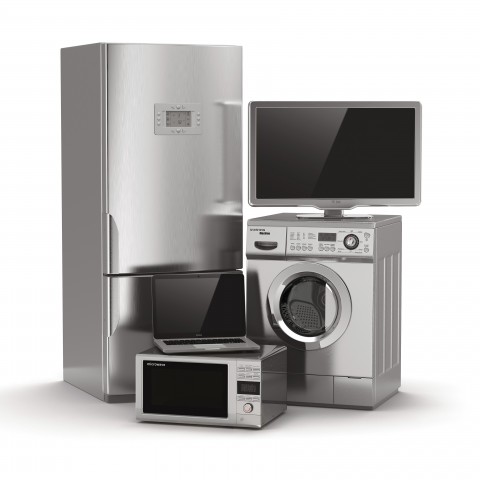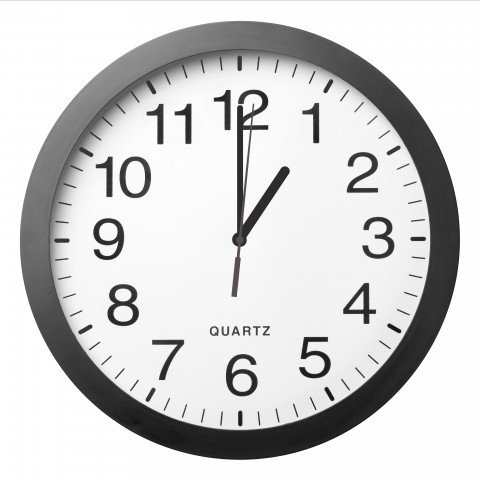
Today, we’re going to give you a complete guide to Hebrew nouns for beginners. In case you’ve forgotten your middle school grammar lessons, nouns, broadly speaking, are words that describe people, places, and things, as well as concepts and ideas. Along with verbs, they are the basic building blocks of language, and are so important that they’re usually the first words a baby learns. (Think of words like “mama,” “ball,” and “bottle.”)
With that in mind, you can see how learning from a list of Hebrew nouns that are used in everyday speech, and practicing their use, is a great way to make a big leap in your progress as a language-learner.
Before we jump into our Hebrew nouns list, though, let’s go over a few basic things to keep in mind as far as Hebrew grammar goes.
Hebrew Nouns: Gender

So, do Hebrew nouns have gender?
First of all, similar to languages such as Spanish and German, there’s the issue of grammatical gender with Hebrew nouns. All nouns, whether they have a biological gender or not, are grammatically either male or female.
How do you know if a word is feminine or masculine in Hebrew?
The good news is that, unlike in other languages with this feature, Hebrew uses the same article for ALL nouns, whether male or female, singular or plural. Though the plural form does change depending on whether a noun is male ז’ – זכר (zakhar) or female נקבה – נ’ (nekeyvah).
Also, we’ll need to use the right Hebrew declensions for any verbs and adjectives we use with these nouns.
Hebrew Dual Nouns
In addition, Hebrew features a dual form for nouns that come in twos, such as eyes, shoes, bicycles, etc.
Another important factor is that to make some compound nouns, Hebrew uses something called a construct state, where the first word becomes genitive (possessive) and may change its vowels, and possibly a letter—and therefore its pronunciation. In these cases, the article (in cases where it’s needed) also jumps to the second word (the possessed noun).
We won’t go too much into detail about Hebrew construct nouns or Hebrew possessive nouns here, but do keep what we went over in mind.
Irregular Hebrew Nouns
There are also some irregular Hebrew nouns, where a noun uses the feminine plural suffix or some other morphology. These are just exceptions we need to memorize, like person and people in English.
Don’t worry, though, if this all sounds complicated. Like with all languages, you have to start somewhere and take it bit by bit. So for today, we’ll just focus on learning about nouns in Hebrew, and where necessary, explain the grammar that goes with them.
To make it a bit easier to practice, we’ll look at the top 100 Hebrew nouns, divided into eight categories:
- Appliances
- Technology
- Transportation
- Restaurant
- School essentials
- Occupation
- Family members
- Body parts
Ready to start our Hebrew nouns list? Here we go!
 Table of Contents
Table of Contents- Nouns in Hebrew: Appliances
- Nouns in Hebrew: Technology
- Nouns in Hebrew: Transportation
- Nouns in Hebrew: Restaurants
- Nouns in Hebrew: School Essentials
- Nouns in Hebrew: Occupations
- Nouns in Hebrew: Family Members
- Nouns in Hebrew: Body Parts
- Nouns in Hebrew: Time
- Conclusion: Nouns are a Great Place to Start!
1. Nouns in Hebrew: Appliances

Appliances are a great place to start your study of Hebrew nouns, since they’re things we use on a daily basis in all sorts of situations. You might just be visiting a friend’s house and need help using the kitchen toaster at breakfast, or perhaps you want to buy a new dryer for your new apartment in Haifa. Let’s see some common Hebrew nouns related to appliances.
1. (‘טלוויזיה (נ – TV
televizyah
לטלוויזיה הזאת יש רזולוציה גבוהה.
La-televizyah hazot yesh rezolutsya gvohah.
“This TV has HD technology.”
2. (‘מקרר (ז – refrigerator
mikarer
המקרר שלנו התקלקל ועכשיו כל האוכל רקוב.
Ha-mekarer shelanu hitkalkel ve-akhshav kol ha-okhel rakuv.
“Our refrigerator broke down and now all the food is rotten.”
3. (‘מזגן (ז – air conditioner
mazgan
תדליק את המזגן בבקשה.
Tadlik et ha-mazgan bevakashah.
“Turn on the air conditioner, please.”
4. (‘מכונת כביסה (נ – washer
mekhonat kvisah
שמתי את הבגדים המלוכלכים שלי במכונת הכביסה.
Samti et ha-bgadim ha-melukhlakhim sheli be-mekhonat ha-kvisah.
“I put my dirty clothes in the washer.”
*Note that this is a compound noun, and uses the construct state with מכונה (mikhonah) changing to מכונת (mikhonat).
5. (‘מאוורר (ז – fan
me’avrer
אתה תחסוך אנרגיה אם תדליק את המאוורר ותכבה את המזגן.
Atah tach’sokh energyah im tadlik et ha-me’avrer ve-tekhabeh et ha-mazgan.
“You’ll save energy if you turn on the fan and turn off the air conditioner.”
6. (‘מיקרוגל (ז – microwave
mikrogal
השימוש במיקרוגל אינו נחשב בריא.
Ha-shimush ba-mikrogal eyno nechshav bari.
“It’s considered unhealthy to use the microwave.”
7. (‘כיריים (ז – stove
kira’yim
אני מנקה את הכיריים עם מסיר שומנים.
Ani menakeh et ha-kira’yim im mesir shumanim.
“I clean the stove with degreaser.”
*Note that this noun uses the dual form, and any verbs or adjectives used must be conjugated accordingly.
8. (‘נגן די.וי.די (ז – DVD player
nagan dividi
בא לי לראות סרט בדי.וי.די.
Ba li lirot seret ba-dividi.
“I feel like watching a movie on the DVD player.”
*Note that this is a compound noun, and uses the construct state.
2. Nouns in Hebrew: Technology

Another important category for learning nouns in Hebrew is technology. A ubiquitous part of our lives these days, you can hardly have an interaction that doesn’t involve the Internet, your cell phone, or a computer. So let’s take a look at some basic technology nouns with examples of use.
9. (‘מחשב (ז – computer
machshev
זה המחשב החדש שלי.
Zeh ha-machshev ha-chadash sheli.
“This is my new computer.”
10. (מחשב נייד (זי – laptop
machshev nayad
יש לך מחשב נייד או נייח?
Yesh lekha machshev nayad o nayach?
“Do you have a laptop or a desktop computer?”
11. (טאבלט (זי – tablet
tablet
הטאבלט שלך ממש מגניב!
Ha-tablet shelkha mamash magniv!
“Your tablet is really cool!”
12. (פלאפון (זי – cell phone
pelefon
תתקשר אליי לפלאפון מאוחר יותר.
Titkasher elay la-pelefon meuchar yoter.
“Call me on my cell phone later.”
13. (אנזיות (ני – headphones
ozniyot
אני אוהב להקשיב למוזיקה עם אוזניות.
Ani ohev lehakshiv le-muzika im ozniyot.
“I like to listen to music with headphones.”
14. (מטען (זי – charger
mat’en
ראית את המטען לפלאפון שלי?
Raita et ha-mat’en la-pelefon sheli?
“Have you seen my cell phone charger?”
15. (וויי-פיי (זי – WiFi
wayfay
מה הסיסמה לוויי-פיי בבקשה?
Mah ha-sismah la-wayfay be-vakashah?
“What is the WiFi password, please?”
16. (תוכנה (ני – app
tokhnah
הורדתי תוכנה מצויינת לניווט בדרכים.
Horadeti tokhnah metzuyenet le-nivut ba-drakhim.
“I downloaded a great app for on-the-road navigation.”
17. (אתר אינטרנט (זי – website
atar internet
יש לחברה שלך אתר אינטרנט?
Yesh la-chevrah shelkha atar internet?
“Does your company have a website?”
*Note that this is a compound noun, and uses the construct state.
18. (תמונה (ני – picture
tmunah
בא לכם לראות תמונות מהטיול שלי?
Ba lakhem lir’ot tmunot me-ha-tiyul sheli?
“Do you feel like seeing some pictures from my trip?”
19. (קובץ (זי – file
kovetz
איפה שמרת את הקובץ עם שיעורי הבית שלי?
Eyfoh shamarta et ha-kovetz im shi’urey ha-bayit sheli?
“Where did you save the file with my homework?”
20. (חשבון (זי – account
cheshbon
יש לך חשבון סקייפ?
Yesh lekha cheshbon skayp?
“Do you have a Skype account?”
*Note that this is an irregular noun. Even though חשבון is masculine, the plural form is חשבונות.
3. Nouns in Hebrew: Transportation

Another important category where we’ll definitely want some nouns in our lexicon is transportation. Getting from point A to point B can sometimes be a struggle in any language, but we certainly won’t get far without some basic words to get us started. So let’s have a look!
21. (מטוס (זי – airplane
matos
טסת פעם במוס?
Tasta pa’am be-matos?
“Have you ever been on an airplane?”
21. (רכבת (ני – train
rakevet
הרכבת לתל אביב יוצאת בעוד חמש דקות.
Ha-rakevet le-Tel Aviv yotzeyt be-od chamesh dakot.
“The train to Tel Aviv leaves in five minutes.”
22. (רכבת תחתית (ני – subway
rakevet tachtit
הרכבת התחתית בניו יורק היא מבוך.
Ha-rakevet ha-tachtit be-Nu York hi mavokh.
“The subway in New York is a maze.”
23. (אוטובוס (זי – bus
otobus
אתה יודע מאיפה יוצא האוטובוס לכיוון דרום?
Ata yode’a me-eyfoh yotze ha-otobus le’kivun darom?
“Do you know where the southbound bus leaves from?”
24. (מונית (ני – taxi
monit
ניקח מונית לתאטרון כדי להגיע מהר יותר.
Nikach monit la-te’atron kedey lehagia maher yoter.
“Let’s take a taxi to the theater to get there faster.”
25. (אופניים (זי – bicycle
ofanayim
אתה אוהב לרכב על אופניים?
Ata ohev lirkav al ofanayim?
“Do you like riding a bicycle?”
26. (שדה תעופה (זי – airport
sdey tiufah
אני ממש לא סובל את התורים בשדה התעופה.
Ani mamash lo sovel et ha torim bi-sde ha-teufah.
“I really can’t stand the lines at the airport.”
*Note that this is a compound noun, and uses the construct state with שָׂדֶה (sadeh) changing to שְׂדֵה (sdey).
27. (תחנת רכבת (ני – train station
tachanat rakevet
נקנה כרטיסים בתחנת הרכבת.
Nikneh kartisim be-tachanat ha-rakevet.
“We’ll buy tickets at the train station.”
*Note that this is a compound noun, and uses the construct state with תחנה (tachanah) changing to תחנת (tachanat).
27. (תחנת אוטובוס (ני – bus station
tachanat otobus
חכה לי בתחנת האוטובוס ליד הבית.
Chakeh li be-tachanat ha-otobus le-yad ha-bayit.
“Wait for me at the bus station near the house.”
*Note that this is a compound noun, and uses the construct state with תחנה (tachanah) changing to תחנת (tachanat).
28. (רמזור (זי – traffic light
ramzor
השוטר אמר שעברת ברמזור אדום.
Ha-shoter amar she-avarta be-ramzor adom.
“The police officer said you ran through a red traffic light.”
29. (צומת (זי – intersection
tzomet
פנה ימינה בצומת הבא.
Pneh yeminah ba-tzomet haba.
“Turn right at the next intersection.”
4. Nouns in Hebrew: Restaurants

Another useful category of nouns in Hebrew are words we might use at a restaurant. We all love to eat, and Israelis love to eat more than just about anything. So let’s check out some restaurant-related nouns to get us working up an appetite!
30. (שולחן (זי – table
shulchan
שולחן לשניים?
Shulchan li-shnayim?
“Table for two?”
*Note that this is an irregular noun. Even though שולחן is masculine, the plural form is שולחנות.
31. (תפריט (זי – menu
tafrit
התפריט הזה ממש אקזוטי!
Ha-tafrit ha-zeh mamash ekzoti!
“This menu is quite exotic!”
32. מלצר (זי) / מלצרית – waiter / waitress
meltzar / meltzarit
המלצר ייקח את ההזמנה שלכם בעוד רגע.
Ha-meltzar yikach et ha-hazmanah shelakhem be’od rega.
“The waiter will take your order in just a moment.”
*Note the masculine form מלצר and the feminine form מלצרית, remembering to conjugate verbs and use masculine/feminine adjectives accordingly!
33. (חשבון (זי – bill
cheshbon
אני רוצה לשלם את החשבון עם כרטיס אשראי.
Ani rotzeh leshalem et ha-cheshbon im cartis ashray.
“I would like to pay the bill with a credit card.”
*Note that this is an irregular noun. Even though חשבון is masculine, the plural form is חשבונות.
34. (מזלג (זי – fork
mazleg
סכו”ם הם ראשי תיבות של סכין, כף ומזלג.
SACUM zeh rashey teyvot shel sakin, kaf ve-mazleg.
“Silverware [SACUM in Hebrew] is an acronym for knife, spoon, and fork.”
35. (‘סכין (זי/נ – knife
sakin
סכו”ם הם ראשי תיבות של סכין, כף ומזלג.
SACUM zeh rashey teyvot shel sakin, kaf ve-mazleg.
“Silverware [SACUM in Hebrew] is an acronym for knife, spoon, and fork.”
*Note that סכין is an irregular noun in that it can be masculine or feminine.
36. (‘כף (נ – spoon
kaf
סכו”ם הם ראשי תיבות של סכין, כף ומזלג.
SACUM zeh rashey teyvot shel sakin, kaf ve-mazleg.
“Silverware [SACUM in Hebrew] is an acronym for knife, spoon, and fork.”
37. (‘צלחת (נ – plate
tzalachat
תיזהר, הצלחת חמה!
Tizaher, ha-tzalachat chamah!
“Careful, the plate is hot!”
38. (‘קערה (נ – bowl
kiarah
בפסח אנחנו משתמשים בקערה מיוחדת לסדר.
Be-Pesach anachnu mishtamshim be-tzalachat meyuchedet la-Seder.
“On Passover, we use a special bowl for the Seder.”
39. (‘כוס (נ – cup
kos
אפשר עוד כוס מיץ?
Efshar od cos mitz?
“Could I have another cup of juice?”
*Note that כוס is feminine, with the plural form כוסות.
40. (‘מים (ז – water
mayim
אנה צמא בגלל שלא שתיתי מספיק מים היום.
Ani tzameh biglal she-lo shatiti maspik mayim hayom.
“I’m thirsty because I didn’t drink enough water today.”
*Note that מים is always plural in Hebrew. No singular form exists for this noun.
41. (‘תה (ז – tea
teh
אין כמו תה קר ביום חם!
Eyn kmo teh kar be-yom cham!
“There’s nothing like iced tea on a hot day!”
5. Nouns in Hebrew: School Essentials

Yet another category of nouns in Hebrew that we might need are school essentials. Whether we’re taking Hebrew classes at university or sending our kids to Hebrew school, here are some useful nouns to navigate the school world.
42. (‘אוניברסיטה (נ – college
universitah
איזה מקצוע אתה מתכוון ללמוד באוניברסיטה?
Eyzeh miktzoa ata mitkaven lilmod ba-universitah?
“What are you going to major in at college?”
43. (‘תיכון (ז – high school
tikhon
באיזה תיכון אתה לומד?
Be-eyzeh tikhon ata lomed?
“Which high school do you attend?”
44. (‘חטיבת ביניים (נ – middle school
chativat beynayim
יש לי שני בנים בחטיבת הביניים.
Yesh li shney banim be-chativat ha-beynayim.
“I have two sons in middle school.”
*Note that this is a compound noun, and uses the construct state with חטיבה (chativah) changing to חטיבת (chativat).
45. (‘יסודי (ז – elementary school
yesodi
יש לי שתי בנות ביסודי.
Yesh li shtey banot ba-yesodi.
“I have two daughters in elementary school.”
46. (‘ספר (ז – book
seyfer
בסופי שבוע אני אוהב לקרוא ספרים.
Be-sofey shavua ani ohev likro sfarim.
“On weekends, I like to read books.”
47. (‘תרמיל (ז – backpack
tarmil
אל תשכח את הילקוט שלך בבית הספר.
Al tishkach et ha-yalkut shelkha be-veyt ha-seyfer.
“Don’t forget your backpack at school.”
48. (‘עט (ז – pen
eyt
עדיף לכתוב בעט או בעיפרון?
Adif likhtov be-et o be-iparon?
“Is it better to write in pen or pencil?”
49. (‘מוֹרֶה (ז’) / מוֹרָה (נ – teacher
moreh / morah
מי המורה שלך לפיזיקה?
Mi ha-moreh shelkha le-fizikah?
“Who’s your physics teacher?”
*Note the masculine form מוֹרֶה and the feminine form מוֹרָה, remembering to conjugate verbs and use masculine/feminine adjectives accordingly!
50. (‘תלמיד (ז’) / תלמידה (נ – student (in elementary through high school)
talmid / talmidah
יש הרבה תלמידים בכיתה שלי.
Yesh harbe talmidim ba-kitah sheli.
“There are a lot of students in my class.”
*Note the masculine form תלמיד and the feminine form תלמידה, remembering to conjugate verbs and use masculine/feminine adjectives accordingly!
51. (‘סטודנט (ז’) / סטודנטית (נ – student (at university)
student / studentit
אחותי סטודנטית לרפואה.
Achoti studentit le-refuah.
“My sister is a medical student.”
*Note the masculine form סטודנט and the feminine form סטודנטית, remembering to conjugate verbs and use masculine/feminine adjectives accordingly!
52. (‘מבחן (ז – exam
mivchan
יש לנו מבחן במתמטיקה ביום ראשון.
Yesh lanu mivchan be-matematikah be-yom rishon.
“We have a math exam on Sunday.”
53. (‘שיעורי בית (ז – homework
shiurey bayit
האם תוכל לעזור לי עם שיעורי הבית בכימיה?
Haim tukhal la’azor li im shiurey ha-bayit be-khimiyah?
“Could you help me with the homework for chemistry?”
*Note that this is a compound noun, and uses the construct state with שיעורים (shiurim) changing to שיעורי (shiurey).
6. Nouns in Hebrew: Occupations

Another helpful category of nouns in the Hebrew language are occupation and profession names. These can be useful in all sorts of daily interactions, whether we wish to describe what we do, ask someone else the same, or possibly look up a doctor to check out our sore throat after spending a chilly night in the Negev desert.
Let’s have a look at some common occupation names in Hebrew, noting that all of these will have both masculine and feminine forms. Don’t forget to conjugate verbs and choose adjectival forms accordingly!
54. (‘רופא (זי) / רופאה (נ – doctor
rofeh / rofah
אמא שלי רופאה מיילדת.
Ima sheli rof’ah meyaledet.
“My mother is an obstetrician.” [literally, “birth doctor” in Hebrew]
55. (‘עורך דין (זי) / עורכת דין (נ – lawyer
orekh din / orekhet din
אני רוצה ללמוד משפטים ולהיות עורך דין.
Ani rotzeh lilmod mishpatim ve-lihiyot orekh din.
“I want to study law and become a lawyer.”
56. (‘אח (זי) / אחות (נ – nurse
ach / achot
חברה שלי היא אחות בבית החולים.
Chaverah sheli hi achot be-veyt ha-cholim.
“My girlfriend is a nurse at the hospital.”
57. (‘מנהל (זי) / מנהלת (נ – manager
minahel / minahelet
להיות מנהל זו אחריות רבה.
Lihiyot menahel zo achrayut raba.
“Being a manager is a lot of responsibility.”
58. (‘שף (זי) / שפית (נ – chef
shef / shefit
מאז הילדות תמיד חלמתי להיות שפית.
Me’az ha-yaldut tamid chalamti lihiyot shefit.
“I’ve dreamed of being a chef since childhood.”
59. (‘איש עסקים (זי) / אשת עסקים (נ – businessman / businesswoman
ish asakim / eyshet asakim
דוד שלי הוא איש עסקים בגרמניה.
Dod sheli hu ish asakim be-Germanyah.
“My uncle is a businessman in Germany.”
*Note that this is a compound noun, and uses the construct state with אישה (ishah) changing to אשת (eyshet) in the feminine form of the noun.
60. (‘מהנדס (זי) / מהנדסת (נ – engineer
mihandes / mihandeset
בתי הבכורה היא הנדסאית סאונד.
Biti ha-bkhorah hi handesayit saund.
“My eldest daughter is a sound engineer.”
61. (‘עובד מדינה (זי) / עובדת מדינה (נ – civil servant
oved medinah / ovedet medinah
מחר יש לי מבחן למשרה כעובד מדינה.
Machar yesh li mivchan le-misrah ke-oved medinah.
“Tomorrow I have an exam for a civil servant’s position.”
7. Nouns in Hebrew: Family Members
A very common group of nouns we’ll want to know in Hebrew are names of family members. Especially in such a family-oriented culture as Israel’s, it’s an altogether common experience to be interrogated at length regarding the members of your family—all in good humor, of course. Israelis just love talking about their family, so it’s good to familiarize yourself with the most common nouns to describe family members. Again, remember to pay attention to masculine versus feminine forms.
For more family words in Hebrew, check out our article about family members!
62. (משפחה (ני – family
mishpachah
יש לך משפחה גדולה?
Yesh le-kha mishpachah gdolah?
“Do you have a large family?”
63. (‘אמא (נ – mom
ima
אמא שלי עובדת בבנק.
Ima sheli ovedet ba-bank.
“My mom works at the bank.”
*Note that this noun has an irregular plural form of אמהות (imahot).
64. (‘אבא (ז – dad
aba
אבא שלי טייס בחיל האוויר.
Aba sheli tayas be-Chel ha-Avir.
“My dad is a pilot in the Air Force.”
*Note that this noun has an irregular plural form of אבות (avot).
65. (‘הורים (ז – parents
horim
ההורים שלי גרושים.
Ha-horim sheli grushim.
“My parents are divorced.”
66. (‘בעל (ז – husband
baal
בעלי שוטר.
Ba’ali shoter.
“My husband is a police officer.”
67. (‘אישה (נ – wife
isha
אשתי שופטת.
Ishti shofetet.
“My wife is a judge.”
68. דוד – uncle
dod
יש לי דוד בפריז.
Yesh li dos be-Pariz.
“I have an uncle in Paris.”
*Note that this noun has an irregular plural form of בנות (banot).
69. (‘בן (ז – son
ben
יש לנו שני בנים ושתי ובנות.
Yesh lanu sheny banim ve-shtey banot.
“We have two sons and two daughters.”
70. (‘בת (נ – daughter
bat
יש לנו שני בנים ושתי ובנות.
Yesh lanu sheny banim ve-shtey banot.
“We have two sons and two daughters.”
71. (‘סבים (ז – grandparents
sabim
הסבים שלי גרים בהרצליה.
Ha-sabim sheli garim be-Herzeliyah.
“My grandparents live in Herzliya.”
8. Nouns in Hebrew: Body Parts

Now for the parts of the body. You can even learn these like a kid by singing or playing a song while touching the different parts of your body as you practice the names. It may sound silly, but trust us, it really works! So go play Simon Says (שמעון אומר [Shimon omer] in Hebrew) and practice the following nouns.
Note that almost all of the body parts that are pairs use the dual form!
72. (גוף (זי – body
guf
יש לו גוף חזק.
Yesh lo guf chazak.
“He has a strong body.”
73. (ראש (זי – head
rosh
אמא אומרת שיש לי ראש טוב על הכתפיים.
Ima omeret sheyesh li rosh tov al ha-kteyfayim.
“Mom says I have a good head on my shoulders.”
74. (כתף (ני – shoulder
katef
אמא אומרת שיש לי ראש טוב על הכתפיים.
Ima omeret sheyesh li rosh tov al hakteyfayim.
“Mom says I have a good head on my shoulders.”
*Note that this noun uses the dual form, and any verbs or adjectives used must be conjugated accordingly.
75. (יד (ני – arm/hand
yad
אני עושה הרבה כושר כדי לחזק את הידיים.
Ani oseh harbe kosher kedey lechazek et ha-yadayim.
“I do a lot of exercises to strengthen my arms.”
*Note that this noun uses the dual form, and any verbs or adjectives used must be conjugated accordingly.
76. (רגל (ני – leg/foot
regel
לאצן יש רגליים חזקות.
La-atzan yesh raglayim chazakot.
“The runner has strong legs.”
*Note that this noun uses the dual form, and any verbs or adjectives used must be conjugated accordingly.
77. (חזה (זי – chest
chazeh
התינוק שלי אוהב להיות צמוד לחזה שלי.
Ha-tinok sheli ohev lihiyot tzamud la-chazeh sheli.
“My baby likes to be close up against my chest.”
*Note that this is an irregular noun. Even though חזה is masculine, the plural form is חזות (chazot).
78. (בטן (ני – abdomen
beten
לא כדאי לשתות על בטן ריקה.
Lo keday lishtot al beten reykah.
“It’s not a good idea to drink on an empty stomach.”
*Note that this is an irregular noun. Even though בטן is feminine, the plural form is בטנים (bitanim).
79. (פנים (ני – face
panim
איזה פנים יפות!
Eyzeh panim yafot.
“What a beautiful face!”
*Note that פנים is always plural in Hebrew. No singular form exists for this noun.
80. (עין (ני – eye
ayin
באיזה צבע העניניים שלך?
Be-eyzeh tzeva ha-eynayim sehlkha?
“What color are your eyes?”
*Note that this noun uses the dual form, and any verbs or adjectives used must be conjugated accordingly.
81. (אף (זי – nose
af
יש לי נזלת באף.
Yesh li nazelet ba’af.
“I have a runny nose.”
82. (פה (זי – mouth
peh
יש לה פה גדול אבל לב עוד יותר גדול.
Yesh lah peh gadol aval lev od yoter gadol.
“She has a big mouth but a bigger heart.”
*Note that this noun has an irregular plural form of פיות (piyot).
83. (אוזן (ני – ear
ozen
תפתח את האוזניים שלך ותקשיב!
Tiftach et ha-oznayim shelkha ve-takshiv!
“Open your ears and listen!”
*Note that this noun uses the dual form, and any verbs or adjectives used must be conjugated accordingly.
9. Nouns in Hebrew: Time

Our last category for today are nouns related to time. No basic vocabulary would be complete without the words you need to give and ask the time, of course! So without further ado, let’s save you some time and get right to it! Note that a number of these nouns use the dual form!
84. (היום (זי – today
hayom
היום זה האתמול של המחר.
Hayom zeh ha-etmol shel ha-machar.
“Today is tomorrow’s yesterday.”
85. (מחר (זי – tomorrow
hayom
היום זה האתמול של המחר.
Hayom zeh ha-etmol shel ha-machar.
“Today is tomorrow’s yesterday.”
86. (אתמול (זי – yesterday
etmol
היום זה האתמול של המחר.
Hayom zeh ha-etmol shel ha-machar.
“Today is tomorrow’s yesterday.”
87. (יום ראשון (זי – Sunday
yom rishon
בישראל חוזרים לעבודה ביום ראשון.
Be-Yisrael chozrim la’avoda Be-yom rishon.
“In Israel, people go back to work on Sunday.”
88. (יום שני (זי – Monday
yom sheyni
ביום שני ניסע לים.
Be-yom sheyni nisa la-yam.
“On Monday, we’re going to the beach.”
89. (יום שלישי (זי – Tuesday
yom shlishi
יום שלישי זה היום הכי קשה בשבוע.
Yom shlishi zeh ha-yom hakhi kasheh ba-shavua.
“Tuesday is the hardest day of the week.”
90. (יום רביעי (זי – Wednesday
yom revi’i
יום רביעי הוא מצע השבוע.
Yom revi’i hu emtza ha-shavua.
“Wednesday is the middle of the week.”
91. (יום חמישי (זי – Thursday
yom chamishi
ביום חמישי בערב נצא למסעדה.
Be-yom chamishi ba-erev netze le-mis’adah.
“On Thursday evening, we’ll go out to eat at a restaurant.”
92. (יום שישי (זי – Friday
yom shishi
יום שישי הוא ערב שבת.
Yom shishi hu erev Shabat.
“Friday is Sabbath Eve.”
93. (שבת (זי – Saturday
shabat
שבת הוא יום מנוחה.
Shabat hu yom menuchah.
“Saturday is a day of rest.”
94. (יום (זי – day
yom
יום אחד נתחתן.
Yom echad nitchaten.
“One day we’ll get married.”
95. (יומיים (ני – two days
yomayim
עוד יומיים יום ההולדת שלי.
Od yomayim yom ha-huledet sheli.
“In two days, it’s my birthday.”
*Note that this noun uses the dual form, and any verbs or adjectives used must be conjugated accordingly.
96. (שבוע (זי – week
shavua
יום רביעי הוא אמצע השבוע.
Yom revi’i hu emtza ha-shavua.
“Wednesday is the middle of the week.”
*Note that this is an irregular noun. Even though שבוע is masculine, the plural form is שבועות (shavuot).
97. (שנה (ני – year
shanah
השנה אני מסיים את הלימודים בתיכון.
Ha-shanah ani mesayem et ha-limudim batikhon.
“This year, I’ll finish my studies at high school.”
*Note that this is an irregular noun. Even though שנה is masculine, the plural form is שנים (shanim).
98. (שעה (ני – hour
sha’ah
בעוד שעה נהיה כבר בבית.
Be-od sha’ah nihiye kvar ba-bayit.
“In an hour, we’ll be home already.”
99. (שעתיים (ני – two hours
sha’atayim
רצתי שעתיים בטיילת.
Ratzti sha’atayim ba-tayelet.
“I ran on the boardwalk for two hours.”
*Note that this noun uses the dual form, and any verbs or adjectives used must be conjugated accordingly.
100. (דקה (ני – minute
dakah
תן לי דקה לחפש את התיק שלי.
Ten li dakah lechapes et ha-tik sheli.
“Give me a minute to look for my bag.”
10. Conclusion: Nouns are a Great Place to Start!
So there you have it! One-hundred basic nouns that, if practiced, will get you a pretty long way! Whether going out on a date with an exchange student or visiting family in Israel, the list above—while by no means comprehensive—is an excellent start to be able to hold a brief conversation. And, by practicing the different forms—masculine, feminine, singular, plural, dual—you’ll be more comfortable as you expand your vocabulary.
For now, don’t worry about the grammar too much, just focus on good pronunciation and trying your best to remember which nouns are masculine and which are feminine. But even if you don’t, don’t fret, as Israelis know how hard it is to learn Hebrew nouns, and most will gladly help you out when you make a mistake! Remember, just like babies, take it one word at a time. You should relax and do the same! Every word learned is a huge step.
Before you go, let us know in the comments if you learned any new words! Are there any nouns you want to know the Hebrew word for that we haven’t covered here? We look forward to hearing from you!
We hope you’ve enjoyed this lesson, and that you go out there and get talking! Shalom!










